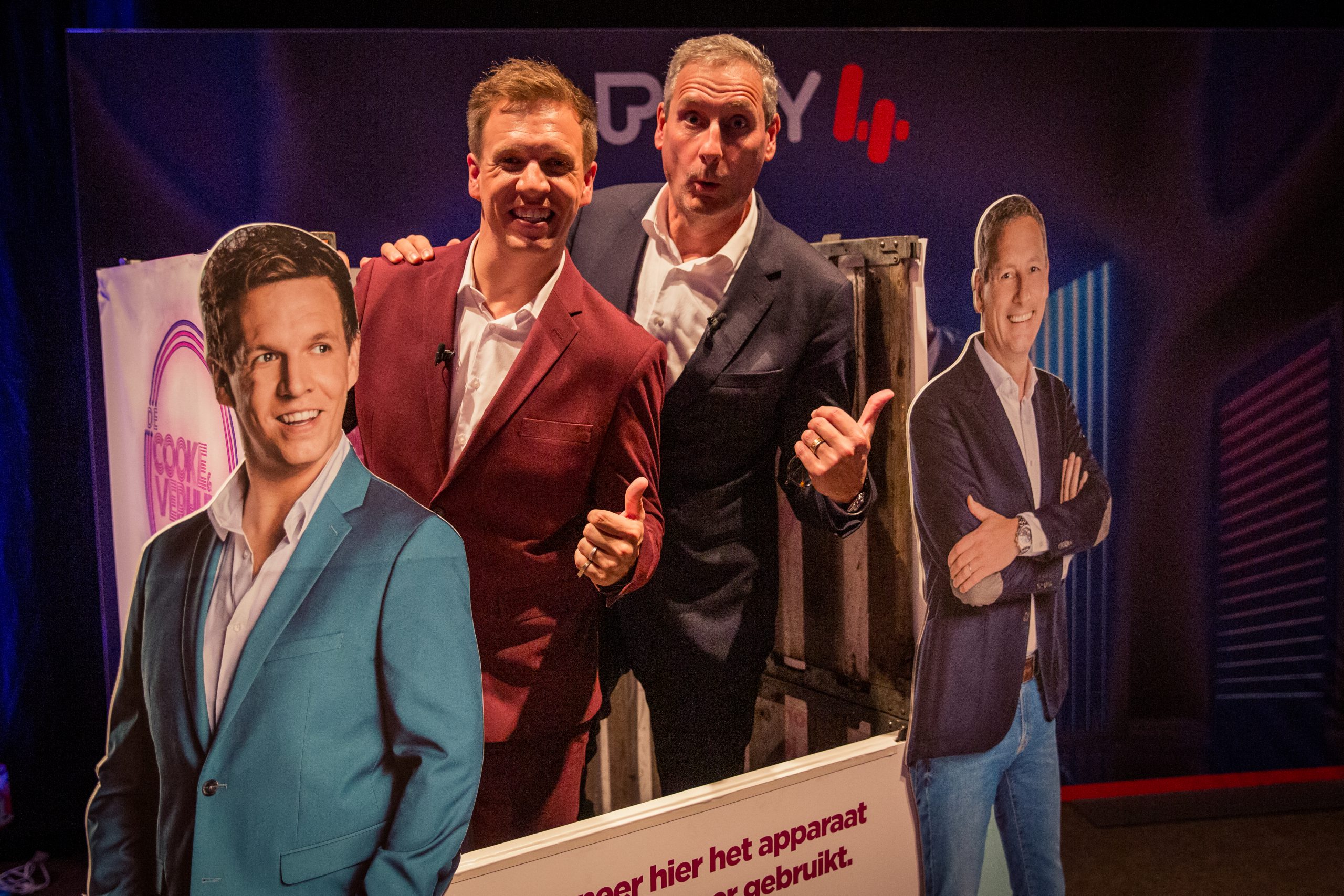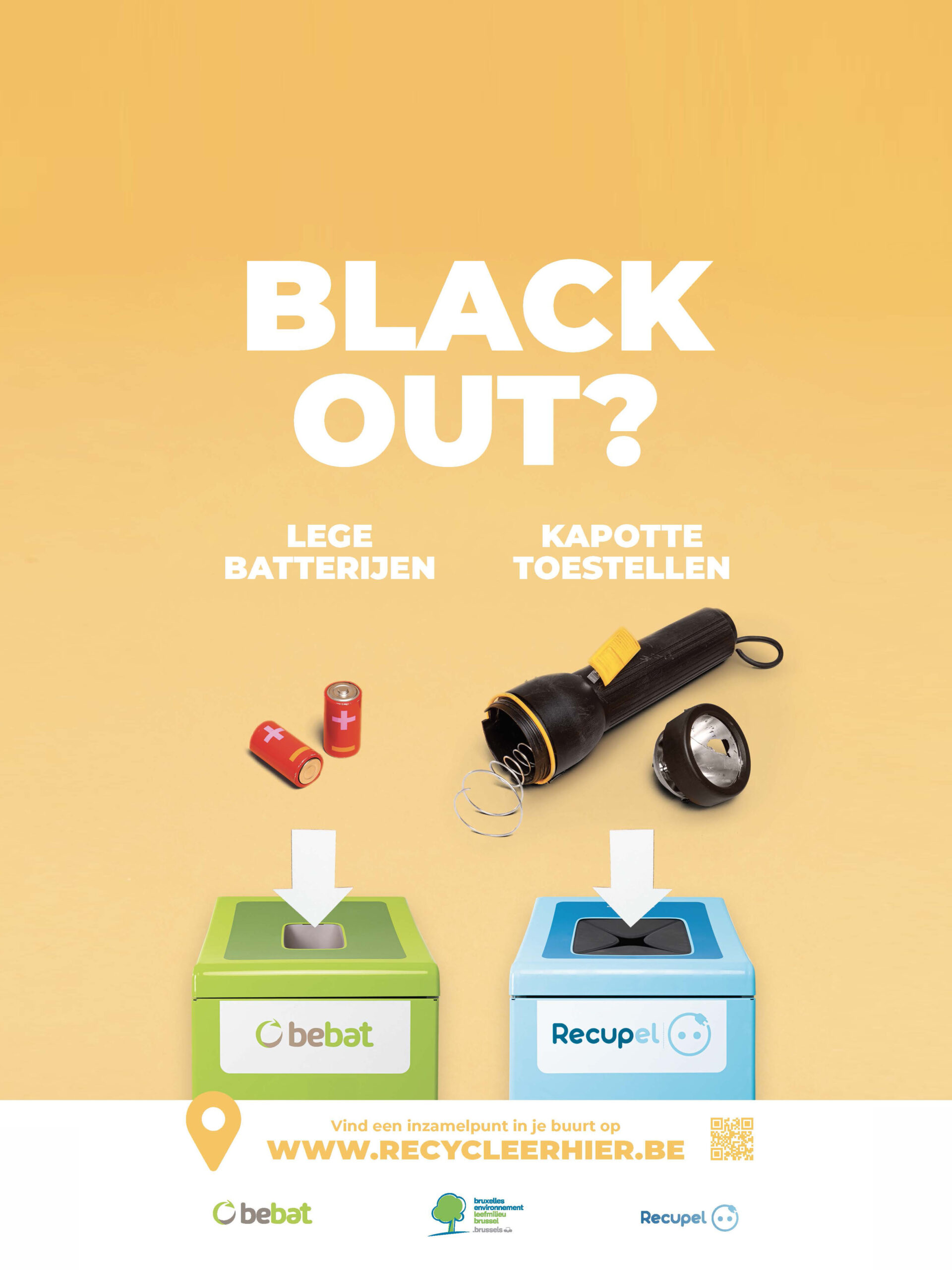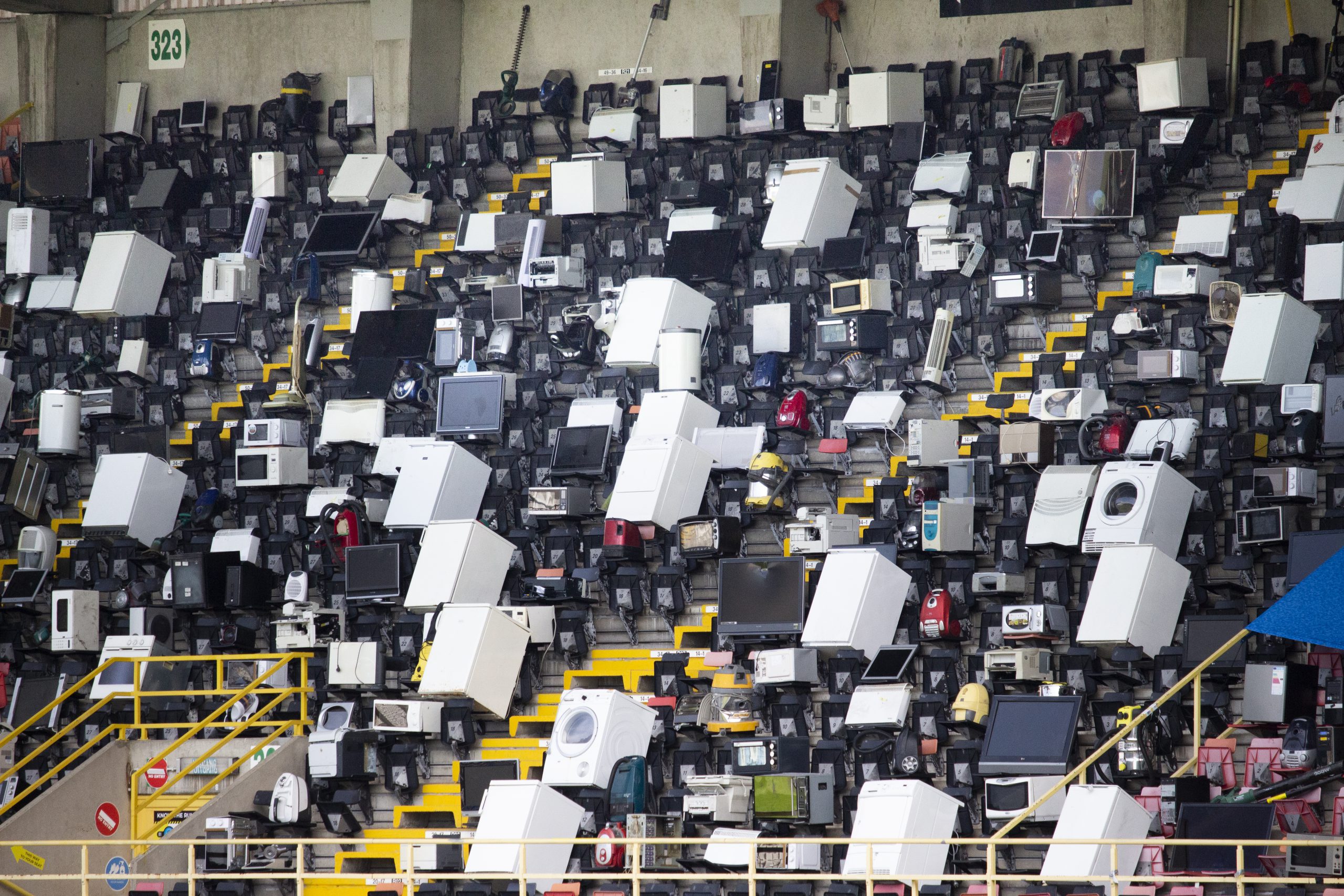Our impact in 2021
In 2021, we once again launched a variety of initiatives and campaigns to encourage Belgians to discard or donate their old appliances.
Collection for flood victims

In the summer of 2021, thousands of Walloon families were affected by severe flooding. Many lost most of their possessions. That is why, together with Gert Verhulst and James Cooke, Recupel and De Kringwinkel made an appeal to all Flemings to donate their unused household appliances. This resulted in the collection of a total of 748 appliances, from refrigerators and hobs to heaters and fans. Bourse aux dons took delivery of the appliances and distributed them among the victims and social organisations.
On the move in Brussels with Bebat

The collection of batteries and old electronic and electrical devices in Brussels could use a boost. That is why Recupel launched an awareness-raising campaign together with Bebat and Bruxelles Environnement. To inform and motivate the people of Brussels, this campaign was advertised in the streets and on buses that criss-crossed the capital for one week in September. The new website, www.recyclezici.be, presents the correct collection methods in an easy-to-understand way and includes a handy map to help people locate the nearest collection point.
Refrigerator campaign

The impact of one incorrectly recycled refrigerator is equivalent to driving 7,500 km by car. And every year almost 200,000 old refrigerators and freezers go missing in Belgium alone. So it was high time to make an extra effort, and a little humour always helps. In cooperation with Delhaize, Recupel distributed 6,000 glass condiment jars. They urged people to be mayo-nice to the environment and not to be an anda-loser (a play on words referring to sauce andalouse). They also urged people to dispose of their old refrigerators and/or freezers using a proper collection channel. This doesn’t have to be a recycling park; a shop with the “Hier recycleren we goed” [“Here, we recycle correctly”] quality label is also fine. The message was also spread in May 2021 via digital and print media for maximum reach.
How do you fill the Jan Breydel Stadium 300 times over?

During Club Brugge’s home match against Mouscron on 18 April 2021, the stands were quiet. Due to the COVID-19 pandemic, no supporters were allowed into the stadium. Yet it was, in fact, well filled – with broken electrical and electronic devices. And they sent out a clear message: “Take a look around at home, because there are an awful lot of us.” Belgian households possess a total of 51 million unused appliances, 9 million of which no longer even work. That is enough to fill 300 football stadiums with broken equipment; equipment that knows nothing about football but is still full of usable raw materials. Club Brugge was happy to make its seats available to help highlight this important message. Hanging on to your unused devices is as crazy as taking them to a football match. It is much better to take them to a collection point for reuse or recycling.
Successful Artificial Intelligence pilot project

Manufacturers of electrical appliances and electronic devices are also responsible for the costs of processing when they are discarded. Recupel regularly carries out random checks to determine how many units of each type of appliance are collected and, on the basis of this, aims to correctly apportion the processing costs. To make these checks more efficient, Recupel worked with IDLab from the University of Antwerp on an Artificial Intelligence (AI) pilot project. A computer algorithm was trained to recognise devices based on images and weight. The pilot project was completed in 2021. The AI system works very well, and we will continue to use it while studying other possibilities. It could also be used in the future to, for example, identify reusable appliances and remove them from the recycling stream.
New appliance list
In 2021, we used the old appliance list with ten categories for the final time. Since 1 January 2022, and in accordance with the European Waste Electrical and Electronic Equipment (WEEE) Directive, a new list – reduced to just six categories – has come into effect. In order to meet the rapid evolution of the range of devices, the new list is no longer exhaustive, but rather illustrative, and includes definitions, examples and exceptions. So now, for instance, the difference between household and professional devices is determined by their intended use. The new categorisation will also lead to changes to the contributions made by suppliers for certain types of devices. By implementing an extensive information campaign, we were able to ensure that all those involved were informed in good time.
Read more about the new appliance list here.





